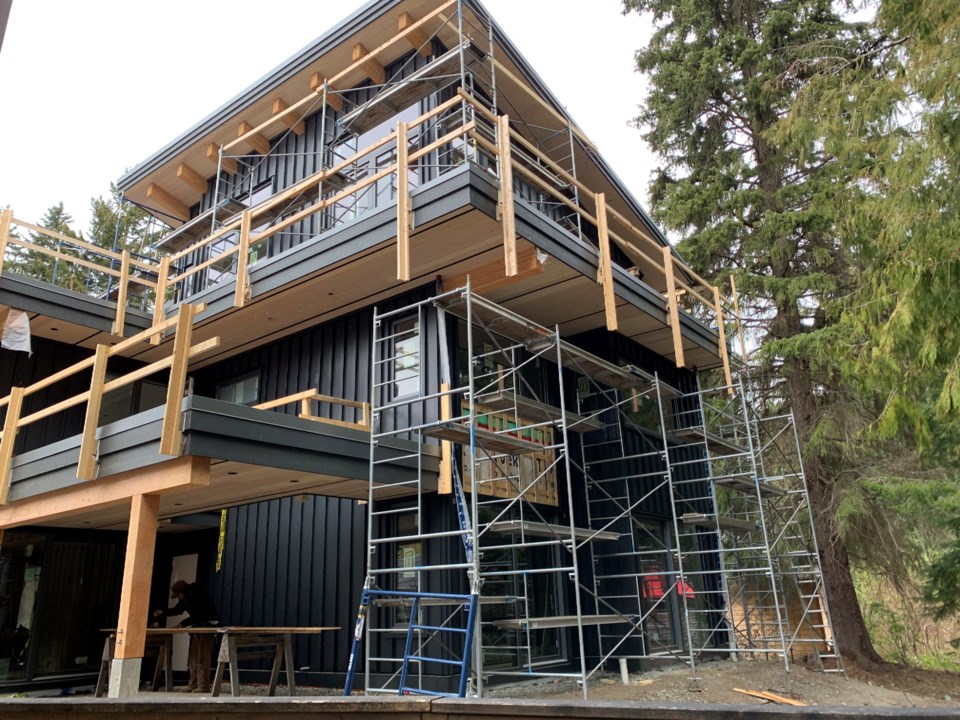I’m writing in opposition to the Resort Municipality of Whistler’s proposed 400-per-cent increase to Whistler’s Board of Variance (BOV) process, from $800 to $4,000, as reported by Pique (“RMOW updates fees for minor bylaw variances,” Dec. 29, 2023), which is set to be adopted by council at the next regular council meeting on Jan. 23.
The BOV fee was last increased from $340 to $800 eight years ago in January 2016. The staff report presented to council in 2016 included a comprehensive “fee comparison with other municipalities” appendix to support the $460 fee increase at that time, yet the 2023 report contains no such comparison. If it did, council may have questioned why Whistler requires a $4,000 BOV application fee when BOV application fees are currently only $400 in Pemberton, $500 in Squamish, $420 in the City of North Vancouver, $509 in the District of North Vancouver, and $830 in West Vancouver. I struggle to believe all other municipalities simply rely on general taxpayer subsidies to keep their application costs lower.
Whistler’s proposed changes to our BOV bylaw are in stark contrast to other municipalities, not only in application fee price, but also in refund policy and processing time—Whistler will now offer only a 25-per-cent refund if the application is withdrawn prior to public notice going out, while the three Vancouver municipalities offer a 50-per-cent refund if the application is withdrawn after your neighbours are notified but before the public hearing. The 35-day “self-imposed” processing time which Whistler will also remove is also standard at the municipalities listed above, with the District of North Vancouver requiring only 12 days notice to file a BOV application prior to the next scheduled hearing.
When questioned about the fee increase by Councillor Jeff Murl last month, staff told council the current BOV fee was already “way out of line” (i.e. not increased enough) when it was raised in January 2016. However, the staff report presented on Jan. 12, 2016 is very clear that the previous BOV increase was made “to reflect the estimated average costs associated with application review and processing and accounts for both administrative staff and planners,” and “administrative staff time includes preparation of notices, delivery of notices, compiling and distributing board packages, attending board meetings, minute taking, decision letter and filing. Planner staff time includes review of application materials, referral to affected municipal departments, site visits, correspondence/meeting with applicants, preparing board memos and attending board meetings.”
That’s a very comprehensive list of previously included costs. If we take at face value that the actual true cost for an application is now $4,000 when inflation and all staff time from other municipal departments is included, the answer to the most important question, “why is the cost so high?” is not answered in the current staff report, which contains no cost breakdown of how the proposed $4,000 fee was calculated.
How can a 16-page development variance permit application form cost the RMOW $3,500 to administer using only paid staff, while a four-page BOV application form costs $500 more when the BOV board is comprised of volunteers? I believe the proposed BOV bylaw is intended to discourage applicants from using the BOV altogether, and is in effect intended to subvert the B.C. Local Government Act, which mandates that a BOV process be provided as an alternative to applying for a development variance permit.
The massive BOV fee increase is being touted as a “user-pay, cost recovery” initiative, but there were only three applications presented at BOV hearings in 2023, and an average of only 4.3 per year over the past three years. The current BOV system isn’t a large problem or burden to the general taxpayer by any means. General municipal taxes were raised by 8.4 per cent in 2023, and are slated to rise another 8.31 per cent in 2024, so there is no public evidence available that demonstrates the new land-use procedures and fees bylaw, implemented in October 2022, which the new BOV bylaw and fee is supposed to align with, is in fact shouldering planning and administration costs.
I respectfully request that mayor and council decline to adopt the proposed BOV bylaw, and I encourage people to express their opinions on this topic to council prior to the meeting on Tuesday, Jan. 23.




